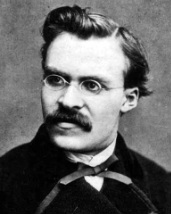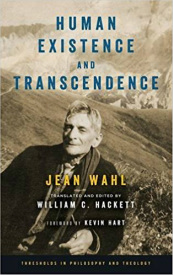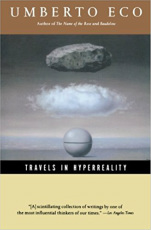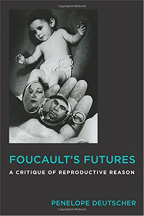
I was recently reminded of this nuance to Nietzsche's thought when I reread his passage on marriage in Thus Spoke Zarathustra. Of course, Nietzsche is notorious for having written some of the most appalling remarks on the institutions of family and marriage. But then one comes across a passage such as this: 'Marriage: thus I name the will of two to create the one that is more than those who created it. Reverence for each other, as for those willing with such a will, is what I name marriage. Let this be the meaning and truth of your marriage.' One is unlikely to find this passage in any list of inspirational quotes about marriage or love, and yet it is one of the strongest and most beautiful representations of marriage I have ever read.
Dissecting it a little bit, Nietzsche roots this sort of love and marriage in an act of the will, an ongoing, unwavering commitment of the spirit. This reminds me of his remarks on the concept of the promise in the Genealogy: 'not simply indigestion from a once-pledged word over which one cannot regain control, but rather an active no-longer-wanting-to-get-rid-of, a willing on and on of something one has once willed, a true memory of the will...' Interestingly as well, marriage is a will of two. These are two individuals who actively and ongoingly choose each other. Love and marriage, according to Nietzsche, ought to derive from strength of character and of will, and from a mutual reverence for one another. (It is worth noting that in this passage Nietzsche does not assign traditionally sexed roles to the marriage partners). Love, for Nietzsche, is based upon strength, as opposed to weakness.
This brings us to the next point. The way that we often think of love, particularly in the West, is that it is a weakness, something that happens to us, some place that we fall, etc. Or we think of it in the terms of a cure for a spiritual sickness -- that human beings are born sickly and incomplete, and require the love of another, reciprocally incomplete person, so that together the two may complete each other. Rather than two strong individuals who mutually strengthen each other, two weak and deficient individuals who need each other just to get by. This is a co-dependent view of love, with all the attendant addiction connotations attached. It is this sort of love, I think, that Nietzsche finds paltry. In that same passage in Zarathustra, Nietzsche writes, 'But that which the all-too-many, the superfluous, call marriage---alas, what shall I name that? Alas, this poverty of the soul in pair! Alas, this wretched contentment in pair! Marriage they call this; and they say that their marriages are made in heaven. Well, I do not like it, this heaven of the superfluous.' A little further down, he writes that 'for the most part, two beasts find each other.' As with so many other concepts and critiques in Nietzsche's writings, it seems that it is a certain type of marriage and of love that Nietzsche rejects.





 RSS Feed
RSS Feed